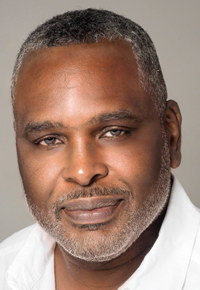
Obstacles, Trickery and Uncertainties:
By Perry Busby
Smiling faces, smiling faces sometimes / They don’t tell the truth / Smiling faces, smiling faces / Tell lies and I got proof — The Undisputed Truth (1971)
Each election cycle African Americans journey to the polls to elect leaders that best represent their vision and hope for America. Many approach the ritual with sincere reverence, remembering the priceless blood that was shed and giving thanks for God ordained warriors such as Medgar Evers, Fannie Lou Hamer, and three college students named Chaney, Goodman and Schwerner, who paved the way for our participation. Some approach from a standpoint of moral obligation. Their justification: Good people are civically responsible, and since they’re a good person… well, you get the point.
Regardless of what motivates us to actively participate in the election process, we all walk away from the voting booth with the same optimism and hope that our vote made a difference.
In order for our vote to make a difference, first, we must be certain that our votes are counted.
Before you dismiss my statement as the rambling of some wild conspiracy theorist, consider this:
In October 2015, Memphis held a city election. The election went about as well as expected, at least by Memphis election standards, which means not well at all. The election was plagued with mishaps and technical glitches. No one was surprised. These were a common occurrence ever since county officials switched to electronic voting machines in 2006.
Despite having to reboot computer servers throughout the day and delaying the results for hours, county election officials assured candidates and the public that the problems were minor, and the final tabulation was not affected.
The story might have held up, if not for Bennie Smith, a financial software developer who runs a sideline business writing software to assist political candidates track the effectiveness of their direct-mail campaigns.
Smith, like most of his clients, is African American, so he was particularly interested in the turnout at several of the predominantly Black precincts. When the polls closed on the day of the election, Smith waited at the largest Black polling locating to take a picture of the poll tape posted on a window at the entrance. The poll tape is literally a tally of all votes cast at the location. The poll tape at the location showed 546 people had cast ballots.
Six days after the election, Smith received an email containing the breakdown by precinct of the election. He checked the count for the precinct he’d been monitoring on election day; the official count was 330 votes. Forty percent of the votes had disappeared.
Smith, along with clients, took the photo to county officials and requested an explanation. After an investigation that spanned several weeks, county technicians reported that not only had votes disappeared from that polling location, more votes had disappeared from other polling locations. All with large concentrations of African Americans.
While we are all familiar with some of the more traditional methods of voter suppression, such as voter ID laws; purging voter rolls; eliminating or shortening early voting; consolidating multiple polling locations into one, creating long delays; and placing faulty equipment at minority locations, electronic voting machines add a layer of complexity that makes it even harder to decipher how votes can by syphoned.
For this reason, we must demand county and state leaders make handmarked paper ballots and manual audits a requirement.
As always stay tuned to the Westside Gazette for more information about your vote.


Be the first to comment